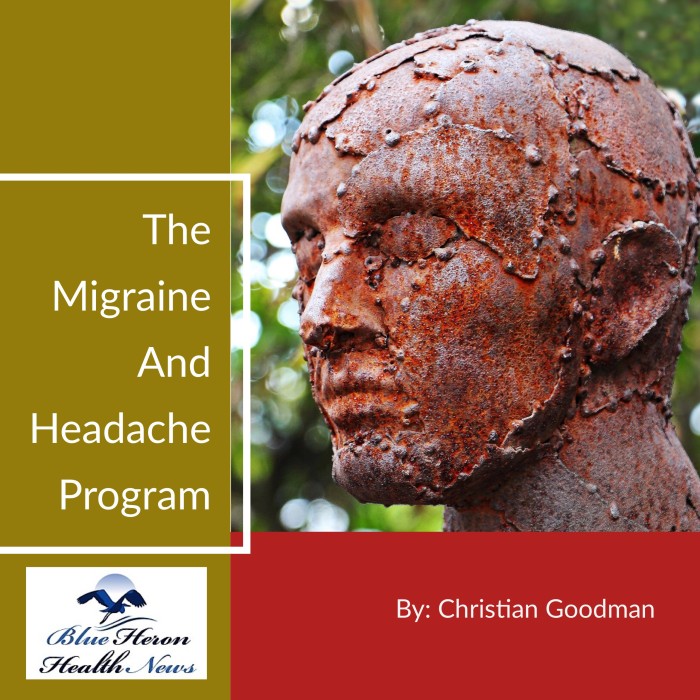
The Migraine And Headache Program By Christian Goodman This program has been designed to relieve the pain in your head due to any reason including migraines efficiently and effectively. The problem of migraine and headaches is really horrible as it compels you to sit in a quiet and dark room to get quick relief. In this program more options to relieve this pain have been discussed to help people like you.
What is the relationship between migraines and mental health conditions like anxiety and depression?
Migraines and mental health conditions like anxiety and depression have a complex and often interconnected relationship. Both physical and psychological factors contribute to this association, creating a two-way link where migraines can exacerbate mental health conditions, and mental health conditions can increase the frequency or severity of migraines. Here’s a detailed look at the relationship between migraines and conditions like anxiety and depression:
1. Shared Biological Pathways
- Neurochemical Imbalance: Both migraines and mental health conditions like anxiety and depression are associated with imbalances in neurotransmitters, particularly serotonin and dopamine. Low serotonin levels, for instance, are linked to both migraines and depression, suggesting that similar pathways in the brain may influence both conditions.
- Cortisol and Stress Response: Chronic stress can lead to overproduction of cortisol, which is associated with both migraine development and increased anxiety or depressive symptoms. People with migraines may have a more reactive stress response, making them more prone to emotional distress.
2. Impact of Migraines on Mental Health
- Living with Chronic Pain: The debilitating nature of migraines can significantly impact a person’s quality of life, leading to feelings of helplessness, frustration, and isolation. This often increases the risk of developing anxiety or depression. Migraine sufferers may feel anxious about future attacks or become socially withdrawn due to the unpredictability of their condition.
- Anxiety about Attacks: The anticipation of a migraine attack can cause significant anxiety, especially if migraines occur frequently or unpredictably. This fear of future migraines can lead to a state of constant worry, creating a vicious cycle where anxiety itself becomes a trigger for more migraines.
- Depression from Disability: Migraine-related disability can reduce participation in work, social activities, and personal relationships. This limitation often leads to feelings of inadequacy, sadness, and hopelessness, which are hallmark symptoms of depression. Over time, these feelings may evolve into clinical depression if left unaddressed.
3. Mental Health Conditions as Migraine Triggers
- Anxiety as a Trigger: Anxiety can be a direct trigger for migraines in some individuals. When someone is experiencing high levels of anxiety, it can lead to muscle tension, poor sleep, and changes in appetite, all of which can set off a migraine. Anxiety also increases the release of stress hormones like adrenaline, which may contribute to migraines.
- Depression and Sleep Disturbances: Depression is often accompanied by sleep disturbances, such as insomnia or oversleeping, both of which can trigger migraines. Sleep regulation is crucial for preventing migraines, and disruptions to the sleep-wake cycle caused by depression may make migraine attacks more frequent.
- Emotional Sensitivity: People with anxiety and depression are often more emotionally sensitive, and emotional stress can trigger migraines. Strong emotions like frustration, sadness, or fear can exacerbate tension and lead to migraine onset.
4. Increased Risk of Anxiety and Depression in Migraine Sufferers
- Higher Prevalence: Research shows that individuals with migraines are more likely to experience anxiety and depression compared to the general population. Studies estimate that about 50% of people with migraines also experience anxiety, and around 25% to 50% also struggle with depression. The likelihood of developing these mental health conditions is particularly high in individuals who experience chronic migraines (15 or more days of migraines per month).
- Chronic Migraines and Comorbidities: People with chronic migraines are especially prone to anxiety and depression due to the long-term disability and unpredictability of their condition. Chronic pain can contribute to a sense of loss of control, which can worsen mental health.
5. Bidirectional Relationship
- Mental Health Conditions Worsen Migraine Symptoms: Anxiety and depression can make individuals more vulnerable to experiencing migraines. People with untreated or poorly managed anxiety or depression may find that their migraines become more frequent and severe.
- Migraines Worsen Mental Health: On the other hand, frequent migraines can worsen symptoms of anxiety and depression. The constant pain, disruption to daily life, and unpredictability of attacks can lead to heightened emotional distress. Over time, the cycle of pain and emotional distress may reinforce each other, making both conditions harder to manage.
6. Impact on Treatment
- Complicated Management: The presence of both migraines and mental health conditions can make treatment more complex. Some medications used to treat migraines, such as triptans, can increase anxiety in certain individuals, while some antidepressants, such as selective serotonin reuptake inhibitors (SSRIs), may help reduce both migraines and depressive symptoms.
- Multidisciplinary Treatment: Given the interrelated nature of migraines and mental health conditions, treatment approaches that address both physical and mental health are often the most effective. This may include a combination of:
- Cognitive Behavioral Therapy (CBT): CBT has been shown to be effective in reducing both migraine frequency and anxiety or depression symptoms by helping individuals manage stress, cope with pain, and reframe negative thinking patterns.
- Medication: Antidepressants (such as tricyclic antidepressants or SSRIs) and anti-anxiety medications (such as benzodiazepines) may be prescribed to manage both conditions. Some medications, such as tricyclic antidepressants, have been found to reduce the frequency and severity of migraines while also treating depression.
- Lifestyle Modifications: Regular physical activity, healthy sleep habits, relaxation techniques (such as mindfulness meditation), and stress management are key strategies for managing both migraines and mental health conditions.
7. Social and Emotional Support
- Importance of Support Networks: Social isolation can exacerbate both migraines and mental health struggles. Building a strong support network, whether through friends, family, or support groups, can be beneficial for coping with both conditions.
- Therapy: Psychological counseling or therapy may be helpful in addressing the emotional toll of living with chronic migraines. Therapy can assist individuals in managing the stress, frustration, and emotional burden of their condition, which in turn may reduce migraine triggers.
Conclusion
Migraines and mental health conditions like anxiety and depression are closely linked through shared biological pathways, the impact of chronic pain, and the emotional toll of managing a disabling condition. Treating migraines effectively often requires addressing mental health needs, and vice versa. A holistic, multidisciplinary approach that considers both physical and psychological factors is essential for managing the interplay between these conditions.
Would you like more information on specific treatment strategies or lifestyle changes that could help manage both migraines and mental health?

The Migraine And Headache Program By Christian Goodman This program has been designed to relieve the pain in your head due to any reason including migraines efficiently and effectively. The problem of migraine and headaches is really horrible as it compels you to sit in a quiet and dark room to get quick relief. In this program more options to relieve this pain have been discussed to help people like you.